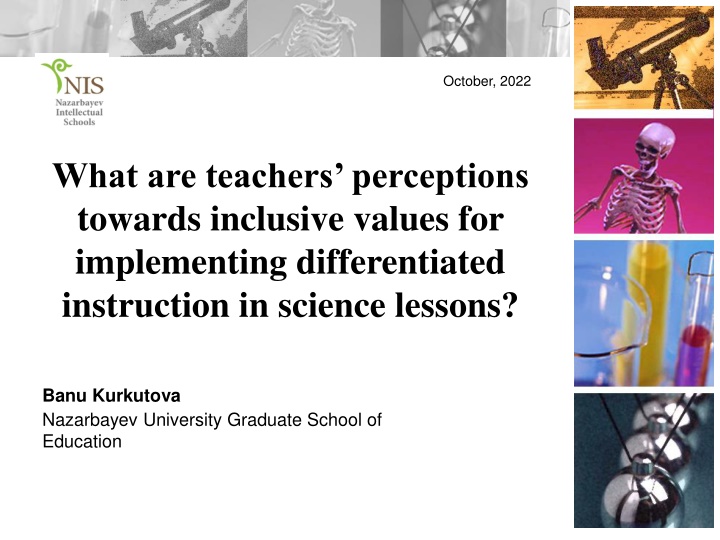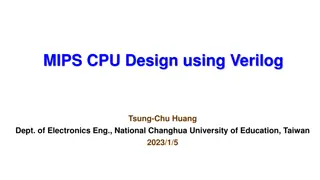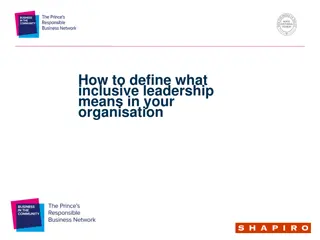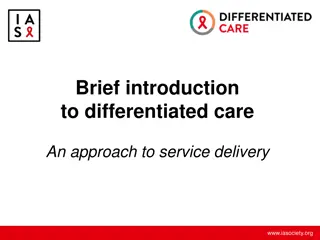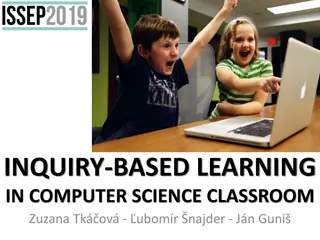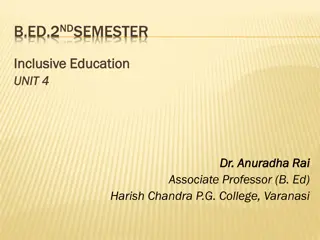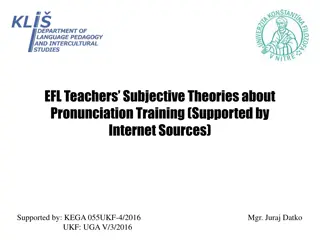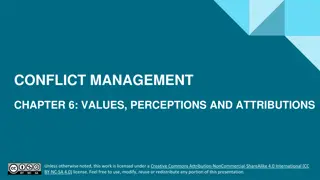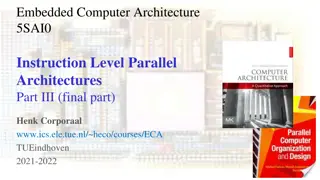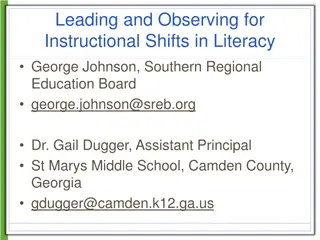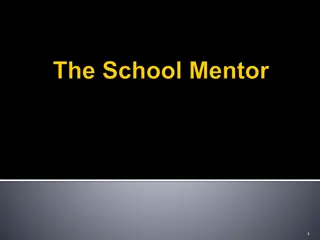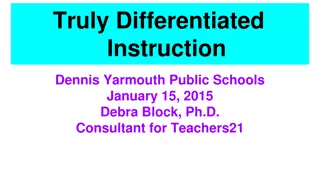Teachers' Perceptions on Inclusive Values for Differentiated Science Instruction
Explore science teachers' perspectives on inclusive values for implementing differentiated instruction in science lessons. The study focuses on understanding how teachers perceive inclusive values in facilitating differentiated teaching, their perspectives on differentiation, strategies for implementation, and values essential for successful differentiation. The research employs a mixed-method case study design, combining quantitative and qualitative approaches to examine the central phenomenon of inclusive values. Data collection involves surveys, observations, and semi-structured interviews with science teachers in secondary mainstream schools. Sampling procedures include snowball and convenience sampling techniques. The study aims to shed light on the beliefs and practices of science teachers regarding differentiation in the classroom.
Download Presentation

Please find below an Image/Link to download the presentation.
The content on the website is provided AS IS for your information and personal use only. It may not be sold, licensed, or shared on other websites without obtaining consent from the author.If you encounter any issues during the download, it is possible that the publisher has removed the file from their server.
You are allowed to download the files provided on this website for personal or commercial use, subject to the condition that they are used lawfully. All files are the property of their respective owners.
The content on the website is provided AS IS for your information and personal use only. It may not be sold, licensed, or shared on other websites without obtaining consent from the author.
E N D
Presentation Transcript
October, 2022 What are teachers perceptions towards inclusive values for implementing differentiated instruction in science lessons? Banu Kurkutova Nazarbayev University Graduate School of Education
Overview Introduction Literature review Data Collection Instruments Data Analysis Methods Ethical Concerns and Risks of Research Limitations Results and discussion Conclusion
1.Introduction Purpose of the study explore teachers perceptions towards inclusive values for DI in science lessons. RQs What are teacher s perspectives of inclusive values to differentiate teaching in science lessons? Sub-questions What are inclusive values that enable DI? What are science teachers perspectives on DI? How do science teachers implement strategies of DI? What inclusive values do science teachers believe to ensure when using DI?
K;lklk;; Mixed-method case study k;;l;lll;l ;l;l;l; Inclusive values central phenomenon Research design is sequential: quantitative approach followed by qualitative research being the dominant method. What are inclusive values that enable DI? What are science teachers perspectives on DI? What inclusive values do science teachers believe to ensure when using DI? Snowball sampling across schools observation What inclusive values do science teachers believe to ensure when using DI? Semi-structured How do science teachers implement DI? What are inclusive values that enable DI? convenience sampling survey interview
Research Site Secondary mainstream school Schedule lesson observations and interviews Visit the site for volunteers gatekeepers permission e-mail
Sample and sampling procedures Quantitative method non-probability sampling techniques such as snowball sampling science teachers of Year 7-11 in the town schools Qualitative method - Convenience sampling
Data Collection Instruments 1) survey based on rating scales, modified from Differentiated Instruction survey (Whipple, 2012). 2) an adapted observation protocol - adopted from Inclusive Classroom Observation Tool by M. E. Morningstar and K. Shogren (2013), 3) semi-structured interviews
5. Data Collection Procedures -Pilot -Qualtrics -self-manage -data accuracy -need internet -volunteers -schedule -semi-structured -in-depth -time-consuming
Data Analysis Methods -recording via field notes -emerging themes and categories - -transcribing - thematic coding-thematic analysis -descriptive statistics
Ethical Concerns and Risks Working hours No names identified No access Application to NU GSE Institutional Research Ethics Committee Informed consent form to the participants (three methods) Anonymity and confidentiality
9. Limitations Planning Analysis
References Ary, D., Jacobs, L. C., Sorensen, K. S., & Walker, D. (2014). Introduction to research in education. The Routledge. Bassey, M. (1999). Case study research in educational settings. McGraw-Hill Education. Bell, J. (2005). Doing your research project: A guide for first-time researchers in education. Open University Press. Blaxter, L., Hughes, C., & Tight, M. (2010). How to research. Maidenhead. Open University Press. Creswell, J. W. (2014). Educational research. London: Pearson.
Thanks for attention!
